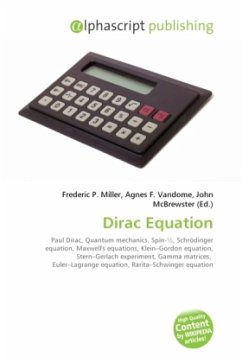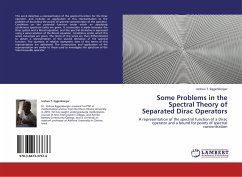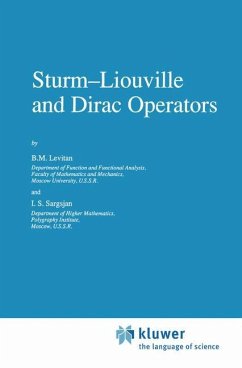
Dirac delta function
Versandkostenfrei!
Versandfertig in 6-10 Tagen
30,99 €
inkl. MwSt.

PAYBACK Punkte
15 °P sammeln!
High Quality Content by WIKIPEDIA articles! The Dirac delta or Dirac's delta is a mathematical construct introduced by theoretical physicist Paul Dirac. Informally, it is a generalized function representing an infinitely sharp peak bounding unit area: a 'function' (x) that has the value zero everywhere except at x = 0 where its value is infinitely large in such a way that its total integral is 1. In the context of signal processing it is often referred to as the unit impulse function. The Dirac delta is not strictly a function, because any function that is equal to zero everywhere but a single...
High Quality Content by WIKIPEDIA articles! The Dirac delta or Dirac's delta is a mathematical construct introduced by theoretical physicist Paul Dirac. Informally, it is a generalized function representing an infinitely sharp peak bounding unit area: a 'function' (x) that has the value zero everywhere except at x = 0 where its value is infinitely large in such a way that its total integral is 1. In the context of signal processing it is often referred to as the unit impulse function. The Dirac delta is not strictly a function, because any function that is equal to zero everywhere but a single point must have total integral zero. While for many purposes it can be manipulated as a function, formally it can be defined as a distribution that is also a measure. In many applications, the Dirac delta is regarded as a kind of limit (a weak limit) of a sequence of functions having a tall spike at the origin. The approximating functions of the sequence are thus "approximate" or "nascent"delta functions.












